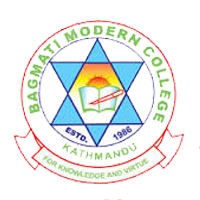Overview
Ten Plus Two (+2) Management at Xavier International College, Kathmandu
Ten Plus Two Management prepares students for commerce and business routes while keeping options open for economics, accounting, information systems, and entrepreneurship.
The setting is the same disciplined college environment: attendance, punctuality, uniform/ID, and active class engagement sit alongside project work and presentations. Those expectations mirror the work culture in Nepal’s service and business sectors.

Highlights
Level: National Examinations Board (NEB), Grade 11–12
Stream focus: accounting, economics, business studies, mathematics or computer applications (as per NEB subject structures for the intake)
Admission steps: course selection, application form, entrance/placement where announced, interview, offer, enrollment; one-to-one appointments are available for families seeking counseling before entry
Student support: counseling for academics, personal matters, career planning, and higher studies; library and computer access for assignments and exam preparation
Curriculum details
Management students learn the language of business: how to read accounts, interpret costs and revenue, and explain decisions using evidence. The timetable mixes compulsory subjects with stream papers. Teachers assign case summaries, short business reports, and presentations that encourage clear writing and numeracy. Project studies and report writing—used widely across the college—create a routine of planning, referencing, and time-bound delivery that is essential for board exams and university coursework.
Objectives
The stream aims to help you:
• understand basic accounting, economics, and business concepts
• practice quantitative reasoning with neat working steps and units
• learn professional communication—emails, memos, brief presentations
• build confidence for management-focused entrance tests after Grade 12
• plan a subject set that supports BBA/BBM/BBS, IT-commerce, or economics
Scope
A +2 Management record aligns with undergraduate choices such as BBA, BBM, BBS, BCA (for students who enjoy computing), and economics or finance. The skills you build—record-keeping, spreadsheet basics, research notes, and presentation—carry into internships and assistant-level roles that many students seek during or after the first year of university.
Learning outcomes
Students learn to:
• write clear, step-by-step accounting solutions for common problems
• read short cases and identify facts, issues, and decisions without filler
• interpret charts and tables and present a brief, accurate takeaway
• work in small teams, divide tasks, and meet submission deadlines
• present findings in two–three minutes using slides or a one-page brief
Skill development modules
Teachers run problem-solving drills, writing practice, and quick presentations. Students complete project studies and report writing cycles that simulate simple business tasks—budget notes, price comparisons, or short market observations. Counseling is available for academic planning and higher studies, so you can choose post-Grade-12 routes based on your strengths and results.
Teaching methodology
Classes use a developmental interactive approach with a balanced teacher–student ratio that supports frequent questions and guided practice. Teachers act as facilitators, plan targeted activities, and keep feedback loops short. That environment helps you fix small errors early—mislabelled axes, missing units, vague topic sentences—before they become exam-day habits.
Admission requirements
Applicants submit SEE or equivalent documents and follow the college’s placement process for the stream. The office publishes seats, forms, interview dates, and fee schedules each intake. Families may request individual appointments to discuss mathematics options, computing choices, and likely university pathways tied to the stream.
Facilities that support Management learning
Students use computer labs for assignments and spreadsheet practice, the library for business reading, and a conference hall for group presentations. Internet-enabled computers and statistical packages support simple data tasks and introductory analysis. A cafeteria operates for students on a non-profit basis.
Career opportunities
A +2 Management background leads to bachelor’s programs that open roles in finance and accounting assistance, sales support, operations coordination, and junior analysis. Many students target BBA/BBM or BBS and then move into banking, insurance, trading, or entry-level corporate roles. Strong writing and spreadsheet skills improve placement chances during university.
Scholarships and financial aid
Scholarship categories are intake-specific. The Admissions Office announces award types, seat counts, and documentation requirements for the session. Keep photocopies of SEE mark sheets, recent photographs, identity documents, and any need-based papers ready for verification.
Why choose this course?
You want a commerce route that values clear writing, neat calculations, and disciplined submissions. The college’s culture of projects, reports, and short presentations builds the same skills used in board exams and in first-year business courses. Access to counseling, library, and labs supports a steady routine built around practice and feedback.
Conclusion
Ten Plus Two Management at Xavier International College gives you a reliable bridge from secondary study to business degrees. The structure—classroom interaction, problem sets, project cycles, and regular feedback—helps you learn how to explain numbers and make short, evidence-based points. Plan forms, interviews, and subject choices with the Admissions Office early in the intake to avoid last-minute rush.



















